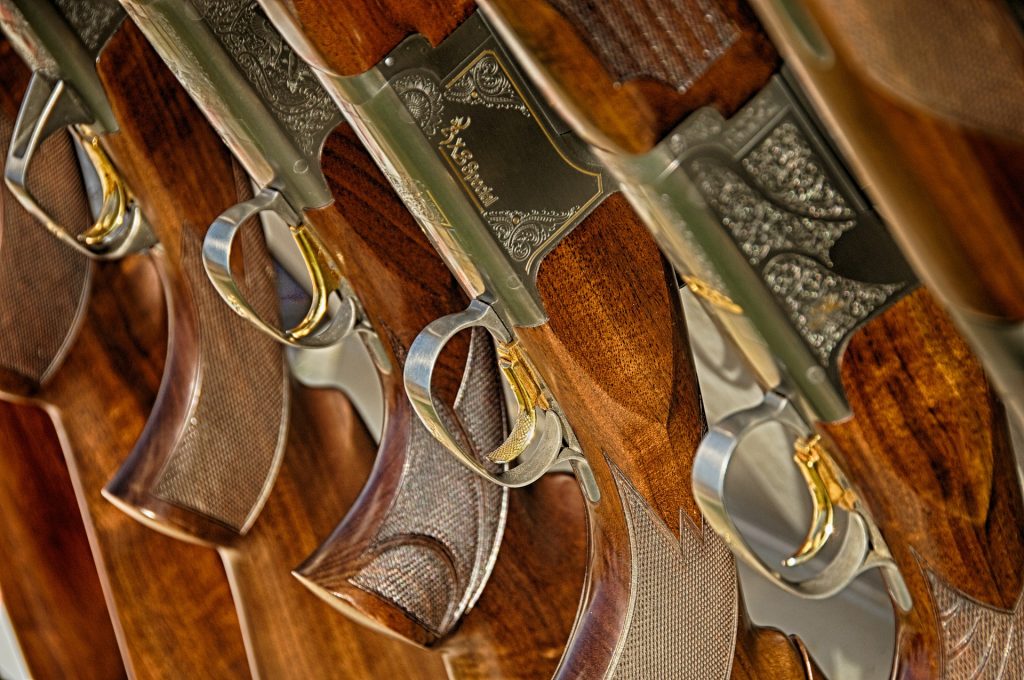 Overall, hunting is getting safer and safer each year. More people are graduating from hunter education courses, and incident and fatality rates are decreasing. In fact, data shows that hunting is one of the safest recreational activities in America.
Overall, hunting is getting safer and safer each year. More people are graduating from hunter education courses, and incident and fatality rates are decreasing. In fact, data shows that hunting is one of the safest recreational activities in America.
However, hunting still involves a risky combination of firearms and the potential for human error. Each year, Texas Parks and Wildlife collects, analyzes, and reports on data regarding Texas hunting safety incidents. In 2017, two people were accidentally killed by the discharge of a firearm while hunting, and 10 people died due in hunting accidents that did not involve the discharge of a firearm. Law violations were involved in nine of these incidents, a number that is significantly higher than previous years.
How Hunting Accidents Happen
Right here in Dallas County last year, four hunters were hunting hogs in an open field at night when one member of the group lagged behind the others. As the hunters fired at scattering hogs, one of their bullets struck the right upper chest of the man who lagged behind. It was dark and he was crouched down, which probably made him look like a hog to his fellow hunters. It was simply a tragic accident.
This is one of the ways that hunting accidents can occur – hunters’ visibility is reduced in the dark, and a person not wearing bright colors either blends in with the surroundings or gets mistaken for the animal the hunters are seeking. According to the data, other contributing factors common to hunting accidents include hunters who have not completed a hunter education course (75% in 2017), careless handling like pointing a firearm in an unsafe direction, and environmental issues such as drowning or falling. In 2017, six hunters died of drowning.
Common-Sense Hunter Dos and Don’ts
Whether it’s not taking the time to educate yourself, letting fatigue get the best of you, or breaking the law, there are unfortunately many ways to get into trouble while hunting. Here are some basic dos and don’ts to keep in mind to avoid such trouble:
- Do bring your charged phone with you on your hunt and tell any companions where you intend to hunt. This way, you can call for help and/or people will know where to look for you in the event that an incident does occur.
- Don’t shoot before dawn or after dark. Legal shooting hours are 30 minutes before sunrise to 30 minutes after sunset.
- Do be careful climbing into an elevated blind. A Texas hunter died last year after falling 10 feet from an elevated stand. Make sure your firearm is not loaded as you climb the ladder.
- Don’t shoot before clearly identifying the target. If the target cannot be clearly identified, do not discharge your firearm.
Hunting Accidents and the Law
In situations where a hunter accidentally discharges a firearm and hurts or kills another person, like some of the cases above, the shooter may be considered liable in a civil case. If the hunter failed to follow basic hunting safety rules because he forgot or didn’t educate himself, he may be considered negligent. Even further, a hunter who disregards basic hunting safety rules or drinks before or while hunting may be considered reckless by a court of law.
Whether negligent or reckless, these hunters will most likely have to pay damages for the injured person’s medical bills, lost wages, and other costs as the result of a civil case.
Liability can sometimes apply to other parties as well, depending on the details of the incident. Property owners are responsible for maintaining a safe environment, and owe their visitors a duty of care. Assuming a hunter was not trespassing, a property owner may partly liable for a hunting accident that occurred on his or her property.
Finally, if a firearm malfunction contributed to the incident, the manufacturer may be considered liable. This falls under product liability law, which says that a manufacturer is responsible for injuries caused by the design, manufacturing, and/or labeling of its product.
Dallas Hunting Accident Attorneys
Unfortunately, devastating hunting accidents have occurred in the Dallas area, and there may be more in the future. These kinds of accidents are complicated, and involve unique injuries. This is why it is so important to have a personal injury attorney who has seen it all on your side.
A knowledgeable Dallas personal injury attorney can make sense of what happened, determine any liability, and help you get the compensation you need to get back on your feet after a hunting accident. For a free consultation with Crowe Arnold & Majors, LLP, call (214) 231-0555.





